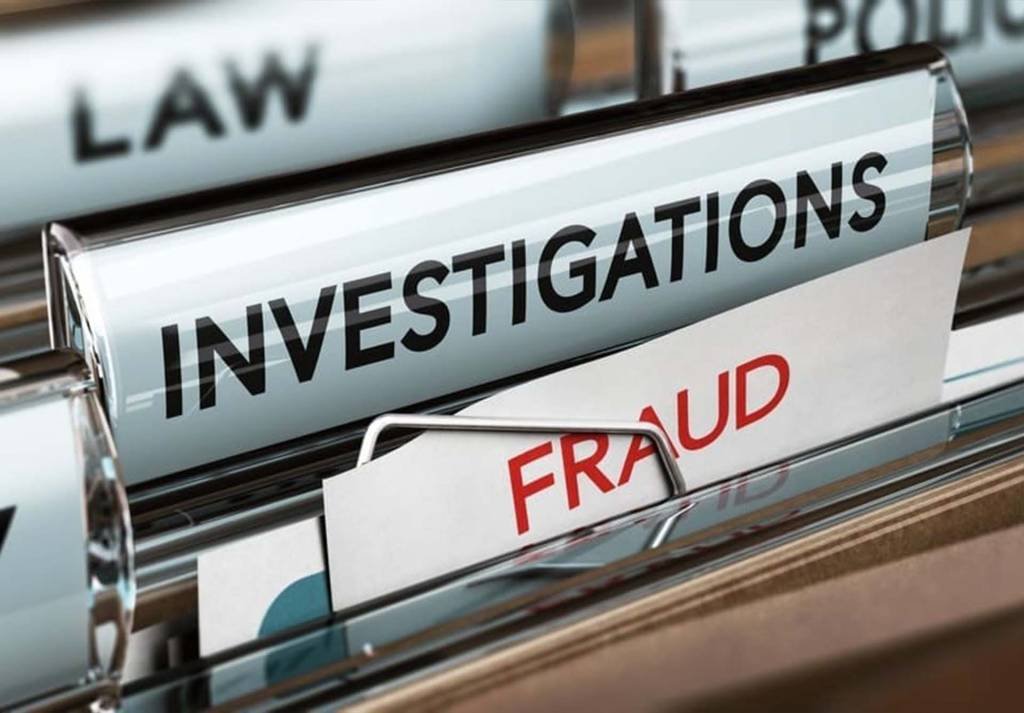Financial fraud poses a significant threat to individuals, businesses, and economies worldwide. In an era where financial transactions are increasingly digitized and complex, the need for robust mechanisms to combat fraud has never been more crucial. Financial fraud investigations, with a primary focus on tracing the money trail, play a pivotal role in uncovering illicit activities, holding perpetrators accountable, and safeguarding the integrity of financial systems.
As we delve into the realm of financial fraud investigations, it becomes apparent that these endeavors extend far beyond mere detective work. They require a sophisticated understanding of financial systems, forensic accounting skills, and a keen eye for uncovering patterns of deception. Private detectives, with their unique set of expertise and resources, often stand at the forefront of unraveling complex financial schemes.
This article explores the intricate world of financial fraud investigations, shedding light on the methods employed by private detectives to trace the money trail. From understanding the various forms of financial fraud to delving into the technological tools that investigators leverage, we embark on a journey to demystify the process of unraveling financial deceit. By the end, it becomes evident that these investigations are not just about following the money; they are about restoring trust, safeguarding financial well-being, and upholding the principles of justice in an ever-evolving financial landscape.
Understanding Financial Fraud
Financial fraud is a multifaceted criminal activity that encompasses a wide range of deceptive practices aimed at obtaining money, assets, or sensitive information through illicit means. To effectively combat and investigate financial fraud, it is crucial to have a comprehensive understanding of the various forms it can take and the techniques employed by fraudsters. In this section, we will delve into the nuances of financial fraud, exploring its definition, common types, and the tactics used by perpetrators.
- Definition of Financial Fraud:
- Financial fraud involves intentional deception or misrepresentation to gain an unfair or unlawful financial advantage. It spans diverse activities, including embezzlement, Ponzi schemes, identity theft, money laundering, and other fraudulent practices.
- Common Types of Financial Fraud:
- Embezzlement: Misappropriation of funds entrusted to an individual, often an employee, for personal gain.
- Identity Theft : Unauthorized use of someone’s personal information to commit financial fraud.
- Ponzi Schemes: Fraudulent investment schemes that promise high returns to early investors, funded by the capital of newer investors.
- Forgery : Falsifying documents or signatures with the intent to deceive for financial gain.
- Insider Trading : Illegally trading securities based on non-public information.
- Techniques Employed by Fraudsters:
- Social Engineering: Manipulating individuals to divulge confidential information through psychological manipulation.
- Phishing: Using deceptive emails or websites to trick individuals into providing sensitive information.
- Account Takeover : Gaining unauthorized access to someone’s financial accounts to conduct fraudulent transactions.
- Shell Companies: Creating fictitious entities to facilitate fraudulent transactions and hide the true beneficiaries.
- Cyber Attacks: Exploiting vulnerabilities in computer systems to access financial information or disrupt financial transactions.
- Real-World Examples of Financial Fraud Cases:
- Enron Scandal: A classic example of corporate fraud involving accounting manipulations to inflate profits.
- Bernie Madoff’s Ponzi Scheme: One of the largest Ponzi schemes in history, deceiving investors out of billions of dollars.
- Equifax Data Breach: Illustrates the impact of cybercriminals gaining unauthorized access to personal and financial information.
Understanding the intricacies of financial fraud is essential for investigators, as it lays the groundwork for developing effective strategies to trace the money trail. In the subsequent sections, we will explore the role of private detectives in uncovering these fraudulent activities and the methodologies employed in financial fraud investigations.
The Role of Private Detectives in Financial Fraud Investigations

Private detectives play a crucial role in uncovering financial fraud, bringing their unique set of skills and resources to the forefront of investigations. As financial crimes become increasingly sophisticated, the expertise of private investigators becomes essential in navigating the complexities of tracing the money trail and gathering evidence. In this section, we will explore the specific contributions that private detectives make to financial fraud investigations.
- Specialized Expertise:
- Financial Acumen: Private detectives often possess a background in finance, accounting, or forensic accounting, equipping them with the knowledge to interpret complex financial transactions and statements.
- Legal Knowledge : Understanding the legal aspects of financial fraud is paramount. Private detectives are well-versed in relevant laws and regulations, ensuring that investigations adhere to legal standards.
- Uncovering Patterns and Anomalies:
- Data Analysis: Private detectives employ advanced data analysis techniques to identify patterns and anomalies in financial records. This includes scrutinizing bank statements, transaction logs, and other financial documents.
- Behavioral Analysis: Investigating the behavior of individuals involved in financial transactions helps private detectives uncover suspicious activities and potential fraud indicators.
- Surveillance and Fieldwork:
- Observation : Conducting surveillance on individuals suspected of involvement in financial fraud allows private detectives to gather real-time information on their activities.
- Interviews and Interrogations: Private detectives conduct interviews with relevant parties to extract valuable information, building a comprehensive understanding of the case.
- Utilizing Technology:
- Digital Forensics: Private detectives leverage digital forensics tools to examine electronic devices and uncover digital evidence related to financial fraud.
- Cybersecurity Measures: As financial fraud increasingly involves cyber elements, private investigators implement cybersecurity measures to protect sensitive information during an investigation.
- Coordinating with Law Enforcement and Legal Teams:
- Information Sharing: Private detectives collaborate with law enforcement agencies and legal teams, sharing findings and coordinating efforts to build a strong case.
- Preparing for Legal Proceedings : Private investigators play a vital role in preparing evidence for legal proceedings, ensuring that the case is presented effectively in court.
- Confidentiality and Discretion:
- Maintaining Confidentiality: Private detectives understand the sensitivity of financial fraud cases and prioritize maintaining confidentiality to protect clients and the integrity of the investigation.
- Discreet Inquiries: Conducting discreet inquiries helps private investigators gather information without alerting potential suspects.
- Adapting to Evolving Tactics:
- Continuous Training : Given the dynamic nature of financial fraud, private detectives engage in continuous training to stay abreast of evolving tactics and technologies employed by fraudsters.
In the intricate web of financial fraud investigations, private detectives act as skilled navigators, employing a combination of financial knowledge, investigative techniques, and technological prowess to trace the money trail and bring perpetrators to justice. The next section will delve into the key steps private detectives take in tracing the money trail during financial fraud investigations.
Technology and Tools in Financial Fraud Investigations
In the ever-evolving landscape of financial fraud, private detectives leverage advanced technologies and specialized tools to trace the money trail and unravel complex schemes. These tools not only enhance the efficiency of investigations but also provide investigators with the means to navigate the digital realm where many financial crimes unfold. In this section, we explore the key technologies and tools employed by private detectives in financial fraud investigations.
- Forensic Accounting Software:
- Analysis and Reconstruction : Forensic accounting software allows investigators to analyze financial data, reconstruct transactions, and identify irregularities in accounting records.
- Audit Trail Examination: These tools create a digital audit trail, helping investigators trace the flow of funds and pinpoint discrepancies.
- Data Analytics Platforms:
- Pattern Recognition: Data analytics platforms enable investigators to identify patterns and trends in large datasets, aiding in the detection of unusual financial activities.
- Behavioral Analysis: Analyzing the behavior of individuals through data helps uncover anomalies and potential indicators of fraud.
- Digital Forensics Tools:
- Device Examination : Private detectives use digital forensics tools to examine electronic devices, such as computers and smartphones, for evidence related to financial fraud.
- Data Recovery: Tools for data recovery assist investigators in retrieving deleted or hidden information critical to the investigation.
- Blockchain Analysis Tools:
- Cryptocurrency Trading: As cryptocurrencies become more prevalent in financial crimes, blockchain analysis tools help trace transactions on decentralized ledgers.
- Identification of Wallets : Investigators use these tools to link cryptocurrency wallets to individuals involved in financial fraud.
- Machine Learning and Artificial Intelligence (AI):
- Fraud Detection Algorithms: Machine learning algorithms can detect patterns indicative of fraud, automatically flagging suspicious transactions for further investigation.
- Predictive Analytics: AI-powered predictive analytics assist investigators in anticipating potential fraudulent activities based on historical data.
As financial fraud schemes become more sophisticated, the integration of these technologies and tools empowers private detectives to conduct thorough and effective investigations. In the subsequent sections, we will delve into the specific steps involved in tracing the money trail and the challenges faced by investigators in the realm of financial fraud.
Future Trends in Financial Fraud Investigations

The landscape of financial fraud is continually evolving, driven by technological advancements, changes in economic structures, and the creativity of fraudsters. As private detectives adapt to new challenges, several trends are emerging in the field of financial fraud investigations. Understanding these future trends is essential for staying ahead in the cat-and-mouse game against financial criminals. In this section, we explore the anticipated developments that will shape the future of financial fraud investigations.
- Advanced-Data Analytics and Artificial Intelligence (AI):
- Predictive Analytics: Future investigations will increasingly rely on predictive analytics, using AI algorithms to forecast potential fraud risks based on historical patterns.
- Machine Learning for Anomaly Detection : AI-powered machine learning models will become more sophisticated in detecting anomalies in large datasets, automating the identification of irregular financial activities.
- Blockchain and Cryptocurrency Challenges:
- Increased Use of Privacy Coins: As privacy coins gain popularity, investigators will face greater challenges in tracing transactions, necessitating the development of enhanced blockchain analysis techniques.
- Decentralized Finance (DeFi): The rise of DeFi platforms poses challenges in monitoring and regulating financial activities, requiring investigators to adapt to the decentralized nature of these systems.
- Cybersecurity Integration:
- Enhanced Cybersecurity Measures: With an anticipated increase in cyber threats, investigators will need to integrate advanced cybersecurity measures to protect sensitive financial data during investigations.
- Collaboration with Cybersecurity Experts: Private detectives will collaborate more closely with cybersecurity experts to address the evolving tactics of cybercriminals involved in financial fraud.
- Quantum Computing Impact:
- Security Risks and Solutions: The advent of quantum computing poses potential security risks to traditional encryption methods. Investigators will need to explore quantum-resistant cryptographic solutions to safeguard financial information.
- Speeding Up Data Processing: Quantum computing’s ability to process vast amounts of data simultaneously could significantly accelerate data analysis in financial fraud investigations.
- Global Collaboration and Regulatory Compliance:
- International Cooperation : Financial fraud investigations will increasingly involve collaboration among global law enforcement agencies, requiring private detectives to navigate complex international legal frameworks.
- Adherence to Evolving Regulations : Private investigators must stay informed about and comply with evolving regulatory frameworks related to financial transactions, data protection, and cross-border cooperation.
Staying ahead of these future trends in financial fraud investigations requires a proactive approach, continuous learning, and a willingness to embrace emerging technologies. Private detectives will play a pivotal role in safeguarding financial systems and protecting individuals and businesses from the evolving threats posed by financial fraud.
Conclusion
In the intricate world of financial fraud investigations, private detectives serve as guardians of financial integrity, employing a dynamic mix of traditional investigative skills and cutting-edge technologies. The evolution of financial crimes necessitates a forward-thinking approach, and as we conclude our exploration, it becomes evident that the future of financial fraud investigations is poised for significant transformations.
The collaboration between private detectives, technological advancements, and regulatory frameworks will shape the landscape of financial fraud investigations in the years to come. The integration of advanced data analytics, artificial intelligence, and quantum-resistant cryptography reflects the industry’s commitment to staying one step ahead of increasingly sophisticated fraudsters.
As blockchain technologies and cryptocurrencies redefine the financial landscape, investigators must adapt to the challenges posed by privacy coins and decentralized finance. The global nature of financial fraud requires seamless international cooperation, emphasizing the importance of public-private partnerships and adherence to evolving regulations.
Biometric authentication, virtual investigations, and behavioral analysis underscore the multidisciplinary nature of future investigations. While technology provides unprecedented tools, the human element, including the expertise of private detectives, remains irreplaceable in deciphering complex motives and patterns.
Continuous training and cross-disciplinary skill development emerge as imperatives for investigators, ensuring they remain agile in the face of evolving tactics. The fusion of cybersecurity measures with forensic analysis reflects a holistic approach to protecting sensitive financial information.
In conclusion, financial fraud investigations stand at the nexus of innovation, ethics, and justice. Private detectives, armed with a diverse skill set and state-of-the-art tools, are poised to navigate the complexities of tracing the money trail and unearthing financial deceit. As we embrace the future, the collaborative efforts of investigators, regulatory bodies, and technology pioneers will play a pivotal role in safeguarding the financial well-being of individuals and the integrity of global financial systems. The pursuit of truth in financial transactions remains at the heart of these investigations, reaffirming the commitment to justice and accountability in the face of ever-evolving challenges.




